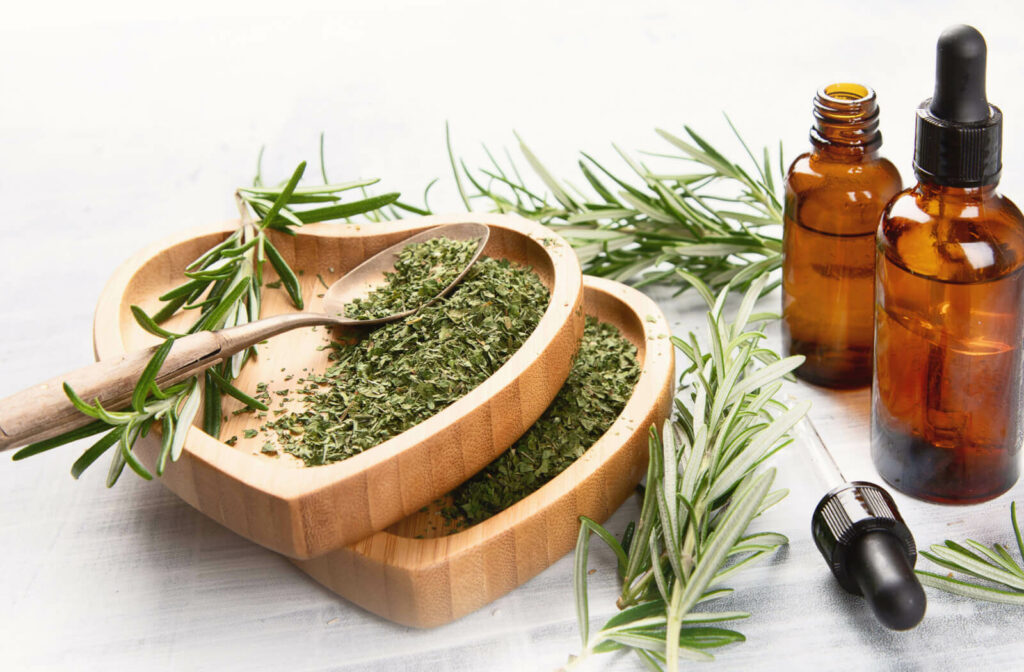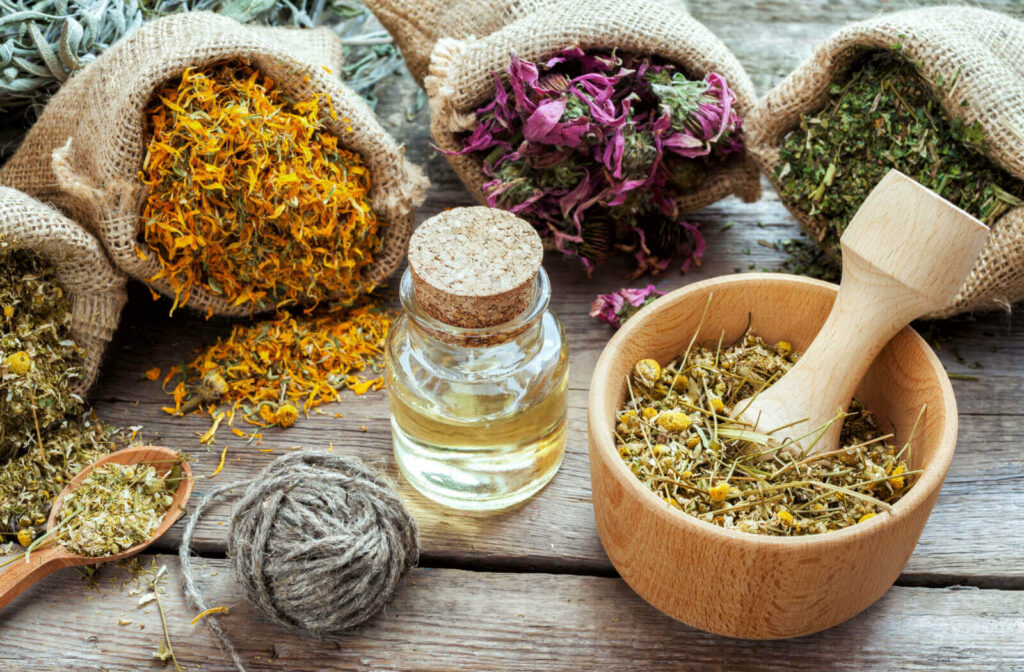As we age, it is common to experience a decline in memory function. Many seniors may worry about the effects of aging on their brain health and seek ways to maintain or improve their cognitive abilities.
One question that often arises is whether certain foods, herbs, or essential oils can help support memory and brain function.
While there is no magic recipe for preventing or reversing memory decline, research suggests that certain foods, herbs, and essential oils may offer some benefits for cognitive health. However, more research is needed to understand the connection fully.
Butter & Memory
Butter is a dairy product high in nutrients such as vitamins A, D, and saturated fat. Some people believe that the saturated fat found in butter can benefit brain health and memory.
However, the evidence on this is mixed. Some studies have suggested that a diet high in saturated fat may increase the risk of cognitive decline and dementia, while others have found no significant association.
Furthermore, while butter can be a tasty addition to many dishes, it’s important to remember that it’s high in calories and cholesterol. Seniors who are trying to lose weight or lower their cholesterol levels may want to consume butter in moderation.
Herbs & Memory
Herbs have been used in traditional medicine to support brain health and memory. While many herbs have traditionally been used for these purposes, 3 of the most common are:
- Ginkgo biloba
- Rosemary
- Sage
Ginkgo Biloba
Ginkgo biloba is a tree native to China that is commonly used in traditional Chinese medicine. The flavonoids and terpenoids found in the leaves of the ginkgo biloba tree are thought to have antioxidant and anti-inflammatory properties.
These compounds may aid in improving blood flow to the brain and protecting cells from damage. According to research, ginkgo biloba may have memory and cognitive function benefits.
A systematic review of 21 randomized controlled trials, for example, discovered that ginkgo biloba extract may improve cognitive function in people with dementia or cognitive impairment.
Another study discovered that ginkgo biloba extract may aid in the improvement of memory and attention in healthy adults.
However, not all studies have found a significant benefit. Furthermore, ginkgo biloba can interact with certain medications, including blood thinners, so consult your doctor before taking ginkgo biloba supplements.

Rosemary
Rosemary is an herb with a pleasant, woodsy aroma that is often used in cooking. It’s native to the Mediterranean region and has been used in traditional medicine.
Rosemary contains antioxidant and anti-inflammatory compounds such as rosmarinic acid and carnosic acid.
Several studies have suggested that rosemary may have memory and cognitive function benefits. One study discovered that taking a rosemary extract supplement may help older adults improve their memory and cognitive performance.
However, more research is needed to fully understand the potential benefits of rosemary for memory and cognitive function. It’s important to talk to your healthcare provider before taking rosemary supplements.
Sage
Sage has a warm, earthy flavor and is commonly used in cooking. Sage also contains antioxidant and anti-inflammatory compounds such as rosmarinic acid and carnosic acid.
According to research, sage may be beneficial to memory and cognitive function. One study, for example, discovered that taking a sage extract supplement may improve memory and cognitive performance in healthy adults.
Another study discovered that smelling sage essential oil may help adults improve their mood and cognitive function.
However, as with ginkgo biloba and rosemary, more research is needed to fully understand sage’s potential memory and cognitive function benefits.
Essential Oils & Memory
Essential oils are concentrated plant extracts that are commonly used in aromatherapy. Some essential oils are thought to have memory-boosting properties, including:
- Peppermint: Studies have shown that this essential oil improves cognitive function and alertness.
- Rosemary: Rosemary essential oil, like the herb, has been shown to improve memory and concentration.
- Lemon: Lemon essential oil has been shown to improve mood and cognitive function.
Again, while essential oils may have some benefits, they’re not a replacement for medical treatment. Furthermore, essential oils should be used with caution because they can be toxic if ingested or applied directly to the skin.
Healthy Lifestyles & Memory
While some foods, herbs, and essential oils may have potential benefits for memory, there’s no one-size-fits-all solution.
Seniors who are interested in supporting their brain health should talk to their doctor and consider making lifestyle changes like:
- Getting regular exercise
- Managing stress
- Staying socially engaged
Memory Care
In addition to making healthy lifestyle choices, seniors with memory concerns may benefit from memory care at Fox Trail in Princeton. Our memory care provides specialized support and services for seniors with memory impairment or dementia.
Our community also offers a secure environment, specialized programming, and personalized care to support residents’ cognitive abilities and improve their quality of life.
For seniors who are concerned about their memory or have a loved one with memory impairment, contact the Fox Trail Memory Care team or schedule a visit; memory care may be an excellent option to consider.




